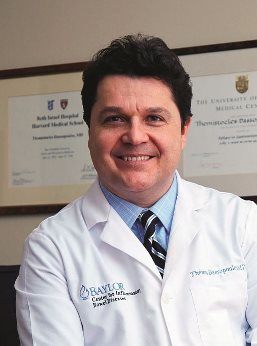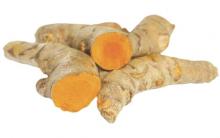More than half of patients with mild to moderate ulcerative colitis who had not responded to optimized mesalamine treatment achieved clinical remission with the addition of 3 grams of curcumin daily, according to a multicenter randomized controlled trial.
In contrast, at week 4, none of the placebo-plus-mesalamine control group had remitted (odds ratio, 42; 95% confidence interval, 2.3-760; P = .01), reported Dr. Alon Lang of Tel-Aviv University, Israel and his associates. The study appears in the August issue of Clinical Gastroenterology and Hepatology.
Mesalamine and curcumin might have “different but potentially synergistic mechanisms of action, hence producing a better outcome” than monotherapy, wrote Dr. Lang and his coinvestigators.
Mesalamine agents are the backbone of treatment for mild to moderate ulcerative colitis, and patients who do not respond to optimized oral and topical therapy are usually stepped up to corticosteroids or immunomodulators, which can have significant side effects, Dr. Lang and his associates noted.
Based on in vitro data supporting the anti-inflammatory and antioxidative properties of curcumin (a phytochemical derived from turmeric), the researchers randomized 50 mesalamine nonresponders who had scored at least 5 but less than 12 on the Simple Clinical Colitis Activity Index to either optimized mesalamine and placebo or optimized mesalamine and 3 grams of curcumin per day. The study excluded patients who had received corticosteroids in the past 12 weeks, were currently receiving anti–tumor necrosis factor agents or cyclosporine, had laboratory abnormalities or significant comorbidities, or had a positive stool culture for Clostridium difficile or enteric pathogens (Clin. Gastroenterol. Hepatol. 2015 [doi:10.1016/j.cgh.2015.02.019])
At week 4, 14 patients (53.8%) in the curcumin-mesalamine group scored 2 or less on the SCCAI, and 17 patients (65.3%) experienced a clinical response, defined as a SCCAI score of 3 or less, the researchers reported. But none of the control group remitted and only three (12.5%) responded clinically (OR, 13.2; 95% CI, 3.1 to 56.6; P < .001), they added. “Admittedly, such nil rate of remission in the placebo arm is much lower than that observed in trials of mesalamine therapy for this indication,” they said. “However, in contrast with prior trials, all patients in the present study were already receiving and failing to respond to optimized oral and topical mesalamine treatment ... it is likely that the zero remission rate and the low (12%) rate of clinical improvement in the placebo arm are a result of this design.”
Use of the SCCAI also could have explained the low remission rate in placebo-treated patients, the researchers said. “Indeed, the SCCAI was recently suggested to be more reflective of actual disease activity compared with other clinical scores, and the strict definition of clinical remission requiring an SCCAI was recently shown to correlate with patients’ genuine sense of remission,” they noted.
In the study, 38% of the intervention group achieved endoscopic remission (a partial Mayo score of 1 or less), compared with none of 16 patients evaluated in the placebo group (OR, 20.7; 95% CI, 1.1 to 393; P = .043). Adverse events were rare and similar between the two groups, the researchers noted.
The trial design lacked a dose-finding component, the sample size was “modest,” and the researchers did not perform a power calculation because no previous studies had looked at the efficacy of curcumin in ulcerative colitis, they wrote.
Sheba Medical Center and the Leona M. and Harry B. Helmsley Charitable Trust helped fund the research. Dr. Lang reported no relevant conflicts of interest, and five coauthors reported relationships with numerous pharmaceutical companies.


